They had already given their lives. What happened August 5th merely capped their calling. Of them it is written, “For your sake we face death all day long; we are considered as sheep to be slaughtered.” Certainly they are “more than conquerors” (Romans 8:36, 37). If the blood of the martyrs is the seed of the church (Tertullian c. A.D. 200), then a precious plant will sprout in Afghanistan.
Important Note: Though they were working for a Christian organization, these ten were medical workers and not missionaries. Four of them were not Christians (though I don’t know which ones). Afghan law forbids proselytizing, and they were strictly following Afghan law.
Dr. Tom Little
 age 61
age 61
New York, USA
He was the Mobile Eye Camps team leader. He was affectionately known as “Mister Tom” amongst the many staff at the National Organization for Ophthalmic Rehabilitation (NOOR). He went with his family to Afghanistan in 1976. He worked as an optometrist and manager setting up clinics and workshops. He learned to speak fluent Dari. He lived in Afghanistan with his wife and three daughters through all of the turbulent periods.
Dr Tom Grams
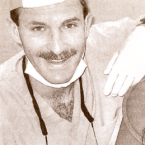 age 51
age 51
Durango, CO, USA
Dr Tom Grams was a dentist and personal friend of Dr Tom Little. He has taken time off for the past 9 years to travel around the world helping poor children who have never even seen a toothbrush. He retired from practice in 2009. He was working full time with Global Dental Relief in India and Nepal. Tom Grams was single.
Cheryl Beckett
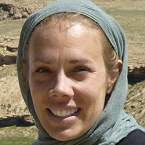 age 32
age 32
Ohio, USA
Cheryl Beckett had been working as an aid worker in Afghanistan since 2005 and had been involved in community development with a focus on nutritional gardening and mother-child health. She had been asked to assist the team as a translator for women patients. Cheryl was a Pashto speaker who worked in a clinic in Pul-e Charkhi on the outskirts of Kabul. Her father, Rev. Charles Beckett is the senior pastor at Woodlawn Christian Church in Knoxville, TN. She is survived by her parents and three siblings.
Brian Carderelli
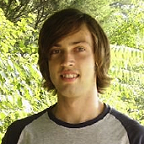 age 25
age 25
Harrisonburg, VA, USA
Brian Carderelli was a professional free-lance videographer. Brian served a number of other organizations in Afghanistan active in development and humanitarian efforts. Brian quickly fell in love with the Afghan people and culture and hoped to stay within the country for another year. He was a 2009 graduate of James Madison University, an Eagle Scout, and active life-long member of Covenant Presbyterian Church in Harrisonburg.
Glen Lapp
 age 40
age 40
Lancaster, PA, USA
Glen trained as an intensive-care nurse and worked in Lancaster, New York City City and Supai, Arizona, and had previously worked in the responses to hurricanes Katrina and Rita. He went to Kabul in 2008, and initially worked in the International Assistance Mission Headquarters in Kabul. After 5 months of Dari language training he began work with NOOR. He was the organizer for the mobile eye camps that reached remote areas.
Dan Terry
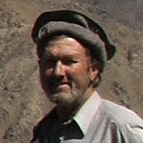 age 63
age 63
Wisconsin, USA
Dan went to Afghanistan in 1971, he had a heart for the rural areas of Afghanistan and worked for many years in Lal-wa Sarjangal. Dan specialized in relating to local communities and liaising with aid organizations and the government to improve services in remote areas. Dan leaves behind his wife, three daughters, and one granddaughter.
Daniela Beyer
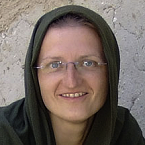 age 35
age 35
Chemnitz, Germany
Daniela was a linguist and a translator in German, English, and Russian. She also spoke Dari and was learning Pashto. She worked for the International Assistance Mission between 2007-2009 doing linguistic research and joined the eye camp so that she could translate for women patients. She is survived by her parents and 3 siblings.
Dr. Karen Woo
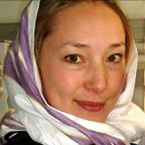 age 36
age 36
London, United Kingdom
Karen was a General Surgeon who went on the trip to be the team doctor and to take maternal health care to the communities in Nuristan. She had been creating a documentary about her work with the charity, Bridge Afghanistan.
Jawed
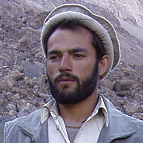 age 24
age 24
Panjshir, Afghanistan
Jawed was employed as cook at the Ministry of Public Health’s Eye Hospital in Kabul and had been released from there in order to attend the Eye Camp. Besides being the team’s cook, he also assisted with the dispensing of eyeglasses. Jawed had been on several eye camps into Nuristan in the past, and was well loved for his sense of humor. He leaves behind a wife and three children below school age.
Mahram Ali
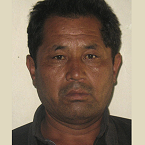 age 50
age 50
Wardak, Afghanistan
Mahram Ali worked as a watchman at maintenance shop of the National Organization for Ophthalmic Rehabilitation (NOOR) since the end of 2007. He stayed guarding the vehicles in Nawa when the rest of the team walked over the pass into Nuristan. He leaves behind a wife and three children, at secondary school age and below.
They were returning from a 15-day medical assistance trip, called a Medical Eye Camp, to the remote Parun valley, which is accessible only on foot and with pack animals.
Two others, who had been with them, escaped. A driver, Safiullah, pled for his life by quoting verses of the Qur’an and saying that he was a Muslim. Mr. Said Yasin, returned to Kabul along a different route in order to visit family in the region.
Taliban spokesman Zabihullah Mujahid claimed responsibility. He claimed to reporters that they were “missionaries,” but he was tragically and perhaps conspiratorially wrong. Qari Malang, the representative of the Western Nuristan Taleban, said “our people in the area have confirmed that they were bona fide aid workers and had been providing assistance to the population. Furthermore, we have learnt that among the killed foreigners, was Dan Terry, who had a long history of helping our people, including in Kunar and Laghman provinces and that he had previously provided welfare assistance to the families of those civilians martyred in bombardments… We pass on our condolences to the families of those killed.”
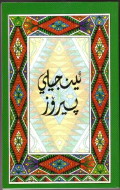 The New Testament in all three Kurdish dialects is on line at
The New Testament in all three Kurdish dialects is on line at 






 http://www.faithandwar.org
http://www.faithandwar.org Mark Durie's Blog
Mark Durie's Blog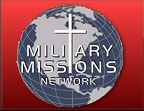 Military Missions Network
Military Missions Network The Christian Fighter Pilot
The Christian Fighter Pilot The Navy Christian
The Navy Christian